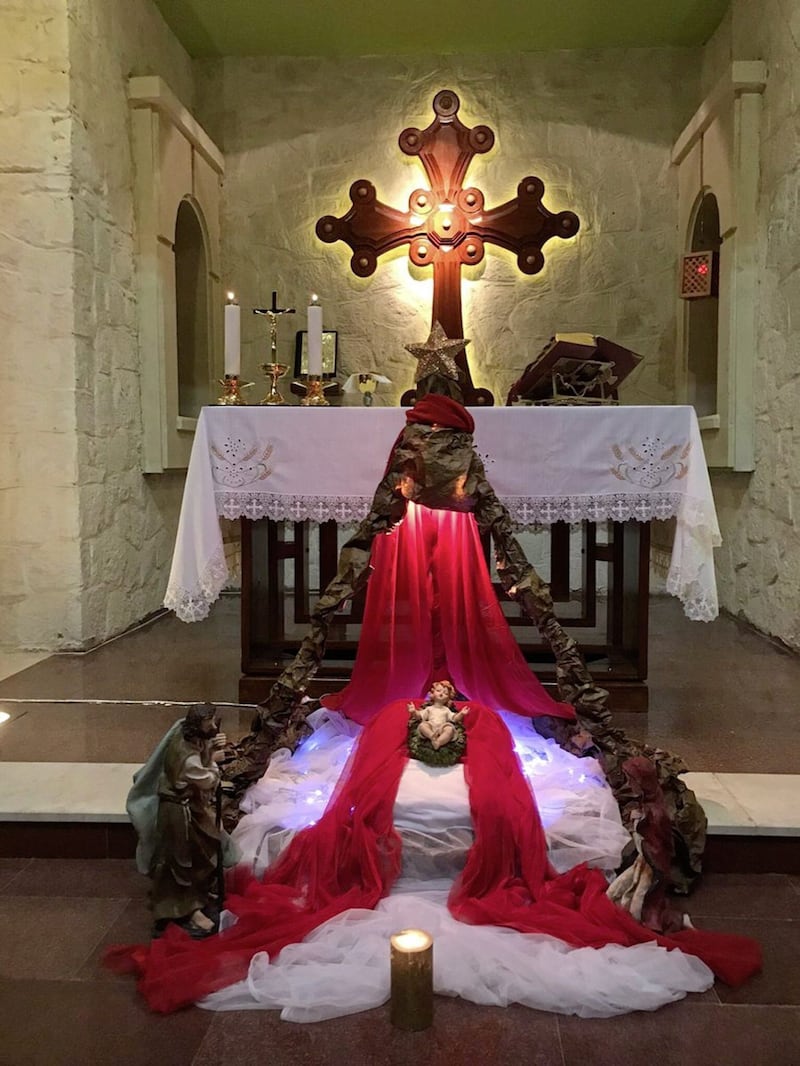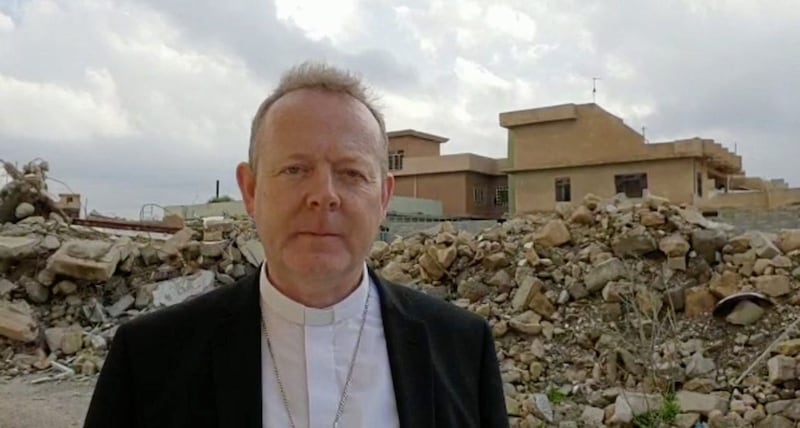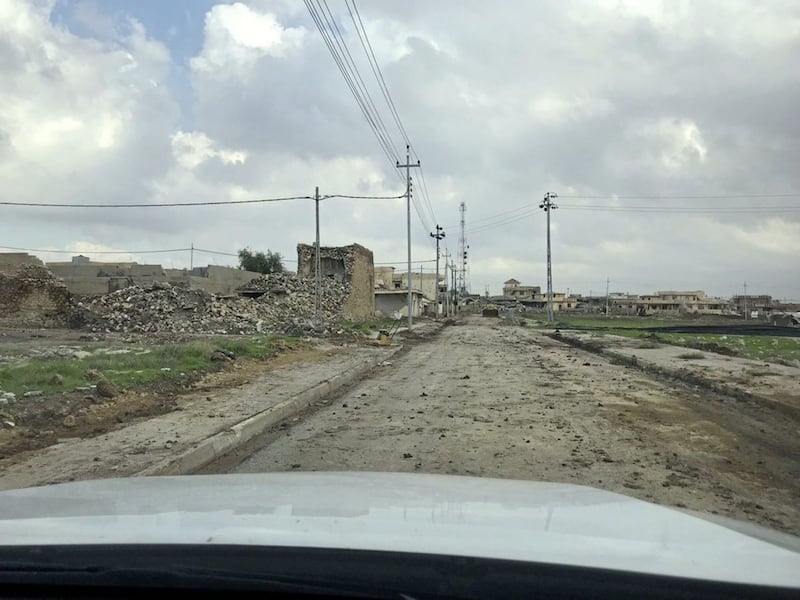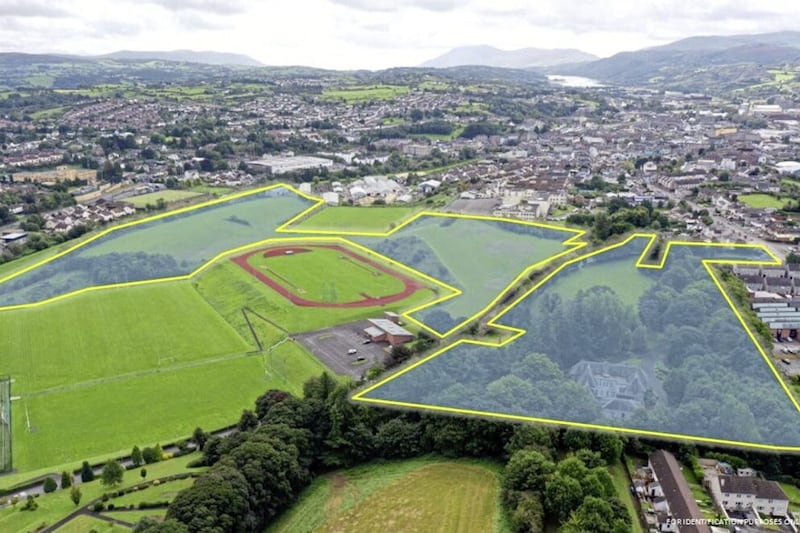ONE month ago, on 'Red Wednesday', the church buildings in Armagh were lit up in red as we gathered in solidarity with Christians and other minorities who are persecuted for their religious beliefs.
Their suffering often goes unnoticed - most of us go on about our Christmas shopping and preparations unaware of the injustice and discrimination which affects many of our Christian brothers and sisters around the world.
Last week, I travelled to northern Iraq with Caoimhe de Barra and Sean Farrell of Trócaire to meet families who in 2014 were terrorised by Isis from their homes in Mosul and the Nineveh plain.
Thankfully some of them have been able to return to their homes and villages, but others are still uncertain and afraid to do so, deterred not least by the presence of unexploded landmines.
In one town, Batnaya, the scale of destruction brought tears to my eyes.
Family homes are burned and looted, shops and businesses lie ruined; church and convent buildings have been destroyed and daubed with hateful graffiti.
Even the town's graveyard is desecrated - crosses and gravestones smashed to pieces.
But the human spirit is strong, made even stronger by faith and by an outpouring of human compassion and charity.
In nearby Telescof I met Fr Salar Boudagh and members of his parish council. When we arrived they were putting up the Christmas tree and crib in the church compound.
I thought of those words from Isaiah which we hear at this time of the year: "The people that walked in darkness has seen a great light."

Sadly, despite reconstruction and the help of foreign aid, their numbers - and those of other minorities like the Yazidi Muslims - are in steep decline since the fall of Saddam Hussein and the rise of al-Qaida.
In Erbil in northern Iraq, we met with Archbishop Bashar Warda, a Redemptorist who learned English in Dundalk.
Their immediate response to the crisis was to set up refugee camps on the church grounds to provide shelter, food and clothing for the displaced families.
With the help of Trócaire and other agencies he opened a healthcare clinic and provided school places.
He maintains that long-term dignity can only be restored by rebuilding livelihoods and increasing job opportunities.
His people are highly skilled but they are naturally nervous about investing in anything beyond simple survival.

Christmas reminds them of the sadness of family separation, but it also brings a glimmer of joy and hope for new beginnings.
At the parish centre the children's choir was arriving to learn Christmas carols, and at the new Catholic University of Erbil young people spoke to us about their vision and dreams for the future.
At the seminary 14 young men are studying for the priesthood. They have no illusions about the challenging vocation to which God is calling them.
Priests in Iraq have to be true shepherds for their people - not only spiritual and community leaders, but also courageous peace-builders and reconcilers.
No doubt they will ask me to come and join them. But I'm not leaving. I will die here and be buried with my family. How can we leave now?
We spoke about Fr Ragheed Ganni, a former student of the Irish College in Rome, who was martyred after celebrating Mass in Mosul in 2007.
Fr Ragheed's attackers shouted as they killed him: "Why are you still here? We told you to close the church."
The Christian communities in the plains of Nineveh are among the earliest in the world, going back to the time of the apostles Thomas and Thaddaeus in the first century.
They still speak Aramaic, the language of Jesus. They do not wish to close their churches and leave their ancient homelands.
Theirs is a story of hope, triumphing over adversity. One elderly man told me he would be talking to his grandchildren - in Chicago and Brisbane - via Skype on Christmas Day.
"No doubt they will ask me to come and join them," he says. "But I'm not leaving. This is where we are from and our people before us. I will die here and be buried with my family. How can we leave now?"
With a lump in my throat I wished him, and his family, a very happy Christmas and a peaceful New Year.









